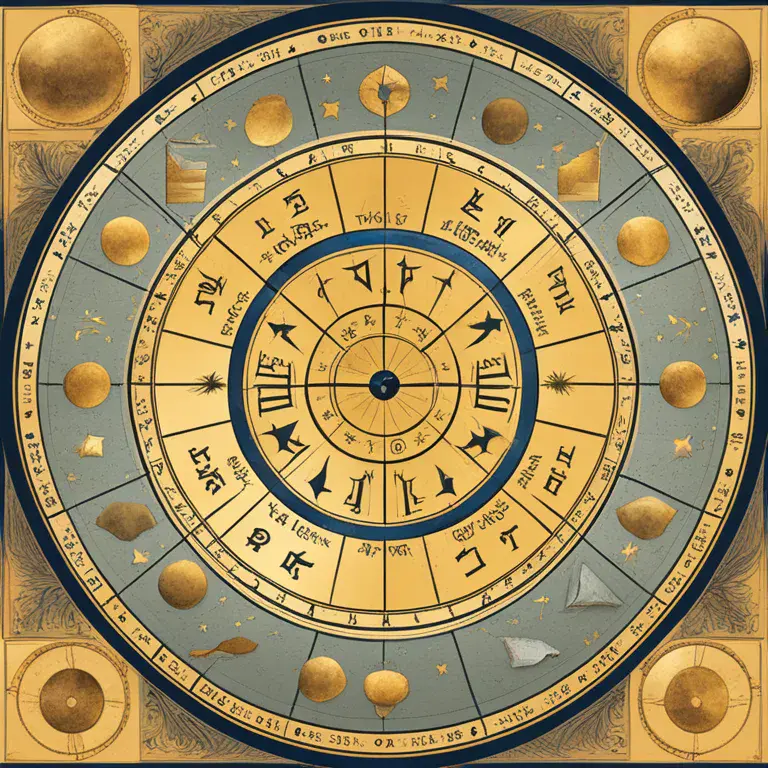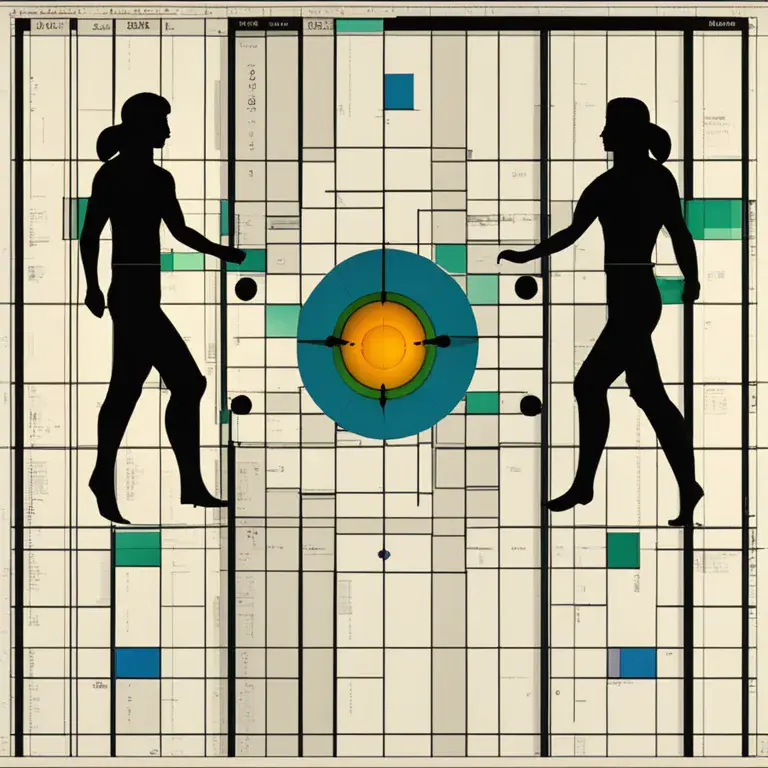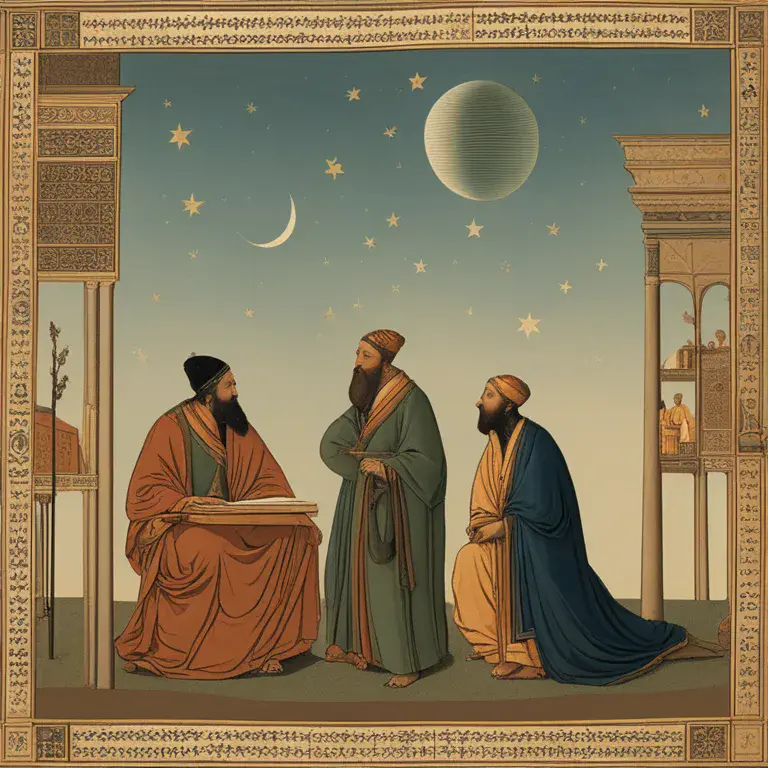
Finding The Origins of Zodiac Signs
Discover the historical roots and celestial underpinnings of the zodiac signs in this concise exploration.
article by Sofia Ferguson
The concept of zodiac signs dates back to ancient civilizations, where the sky's star patterns played a crucial role in myth-making and time-keeping. The zodiac, a term derived from the Greek word 'zodiakos,' meaning 'circle of animals,' reflects the constellations along the ecliptic—the apparent path the Sun takes across the sky over the course of a year. Divided into twelve equal parts, each zodiac sign has been linked to a specific period of the solar year, embodying distinctive characteristics and traits thought to be influenced by celestial movements.

Astrology, the study of celestial bodies' influences on human affairs, has utilized the zodiac as its foundation. The zodiac signs originated from patterns observed in the stars, with astrologers assigning meaning to each sign's segment of the sky. This, in turn, created a celestial map that has influenced horoscopes and personality analysis. As the Earth orbits the Sun, different portions of the sky come into view, each associated with a particular zodiac sign, thus affecting forecasts and compatibility readings for individuals born at different times of the year.

The twelve zodiac signs are categorized into four elements: fire, earth, air, and water. Aries, Leo, and Sagittarius are considered fire signs; Taurus, Virgo, and Capricorn are earth signs; Gemini, Libra, and Aquarius are air signs; and Cancer, Scorpio, and Pisces are water signs. Each element reflects a type of energy that acts in each sign. Astrologers use these elements, along with the position of planets, to forecast events and personal traits, leveraging these archetypes to provide insights and guidance for the future, particularly in the perspective of 2024 and beyond.

In modern times, astrology has evolved with technological advancements, allowing more accurate astronomical data to refine astrological predictions. The development of software and applications has made personalized horoscopes more accessible, providing daily, monthly, and yearly forecasts based on a more granular understanding of planetary movements. As we move into 2024, the integration of AI and complex algorithms promises even more tailored and insightful readings for individuals seeking guidance from the stars.
-and-their-zodiac-signs..webp)
Despite the scientific community's skepticism towards astrology, the cultural and symbolic significance of the zodiac signs remains potent. The human tendency to seek meaning in the stars has persisted for millennia, and the stories woven into the constellations continue to impress upon our collective consciousness. The stars' influence, whether through lore or perceived personality traits, offers a sense of continuity and connection with our ancestors who once gazed at the same celestial canvas.
The world of astrology is experiencing a renaissance as it embraces both the mystical and the digital. The reach and resonance of zodiac signs are expected to expand as more people turn to these ancient symbols for insight and self-discovery in an ever-changing world. With a forward-looking eye on the cycles of planets and the positions of stars, astrology offers a unique lens through which to view our lives in 2024 and the years that follow.
As individuals endeavor to understand their place in the world, the zodiac signs provide a framework for self-reflection and growth. The enduring appeal of astrology speaks to a universal desire to explore the unknown and find meaning in the cosmos. Whether used as a tool for prediction or a means for personal exploration, the zodiac continues to inspire and provoke thought in its seekers, becoming an inextricable part of human culture and identity.
Published: 12/18/2023
Modified: 12/18/2023
More predictions
Come back here soon to learn more about yourself and your future


The Intersection Of Numerology & Astrology
Delve into the synergistic realm where numbers and celestial bodies interplay, enriching the wisdom of both numerology and astrology.


Divine Triangle Explored
Learn how numerology's divine triangle connects numbers with life's journey and spiritual growth.


Numerology & Its Divine Triangle
Explore the mystical connection between numerology and the divine triangle, a framework for personal evolution.